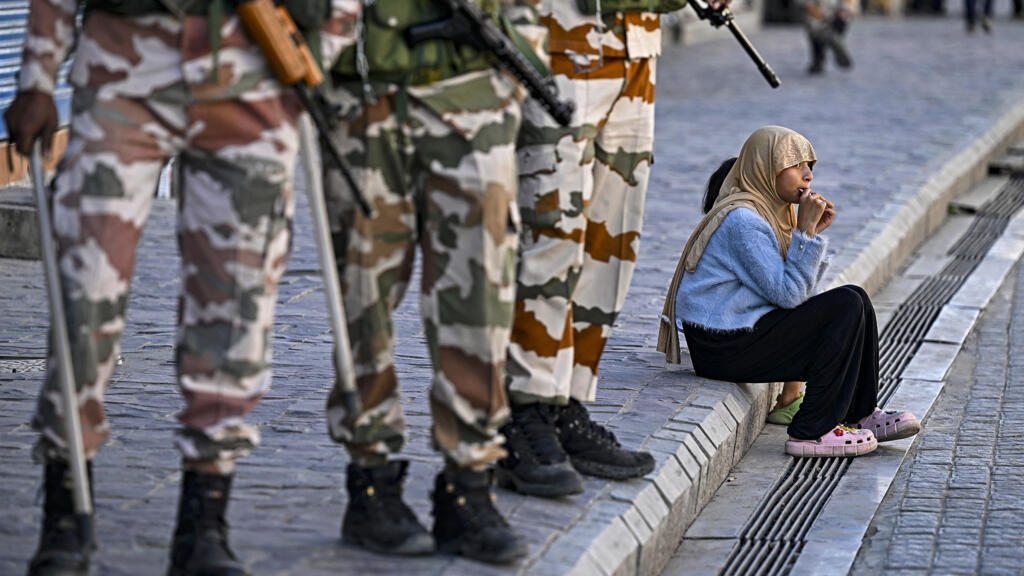Politics
Protests in Ladakh Spark Tensions for Modi’s Government

The region of Ladakh in northern India has witnessed significant unrest following the tragic deaths of four civilians during a police protest. Tensions escalated further with the arrest of a prominent environmental activist, raising concerns about the government’s relationship with local communities.
This unrest is particularly alarming for Prime Minister Narendra Modi, as Ladakh is a geopolitically sensitive area that has already faced challenges since its reorganization into a union territory in August 2019. The recent events have highlighted deep-seated grievances among the local population, which could have lasting implications for Modi’s administration.
Protests erupted after police opened fire on demonstrators advocating for better protections of the region’s environment and cultural heritage. Eyewitness accounts suggest that the situation escalated quickly, resulting in the deaths of the four civilians. The incident has sparked outrage among residents, who are increasingly frustrated by perceived government neglect and heavy-handed law enforcement.
The arrest of the environmental activist, known for advocating sustainable development in Ladakh, has further fueled public anger. Activists argue that the government’s approach to development has prioritized external interests over local needs, threatening the fragile ecosystem and cultural identity of the region.
Local leaders have called for accountability and a reassessment of policies that impact community rights. They argue that the heavy police presence and aggressive tactics used to suppress dissent only serve to alienate the very people the government seeks to engage.
In response to the protests, Prime Minister Modi’s administration has emphasized the need for stability and order. Government officials claim that the police actions were necessary to maintain law and order, but many residents see this as an excuse for repression. The administration’s stance could risk further alienation of the local community, which is crucial for maintaining peace in an area that shares borders with both China and Pakistan.
The situation in Ladakh underscores the complex dynamics of governance in a region marked by ethnic diversity and political sensitivity. As protests continue and calls for reform grow louder, Modi faces a critical test of leadership. The discontent among residents may not only impact his political standing but also have broader implications for India’s national security and regional relations.
The coming weeks will be pivotal for the Modi government. With public sentiment increasingly against them, officials may need to reassess their approach to governance in Ladakh. Engaging with local leaders and addressing community concerns could be essential for restoring trust and reducing tensions in this strategically significant region.
-

 World5 months ago
World5 months agoSouth Korea’s Foreign Minister Cho Hyun to Visit China This Week
-

 Business5 months ago
Business5 months agoStarling Bank Plans Secondary Share Sale, Targeting $5.4 Billion Valuation
-

 Top Stories5 months ago
Top Stories5 months agoMunsang College Celebrates 100 Years with Grand Ceremony
-

 World5 months ago
World5 months agoPAS Aims to Expand Parliamentary Influence in Upcoming Election
-

 Business7 months ago
Business7 months agoKenvue Dismisses CEO Thibaut Mongon as Strategic Review Advances
-

 Lifestyle6 months ago
Lifestyle6 months agoHumanism Camp Engages 250 Youths in Summer Fest 2025
-

 Sports6 months ago
Sports6 months agoDe Minaur Triumphs at Washington Open After Thrilling Comeback
-

 Sports7 months ago
Sports7 months agoTupou and Daugunu Join First Nations Squad for Lions Clash
-

 Top Stories7 months ago
Top Stories7 months agoColombian Senator Miguel Uribe Shows Signs of Recovery After Attack
-

 World7 months ago
World7 months agoASEAN Gears Up for Historic Joint Meeting of Foreign and Economic Ministers
-

 Health6 months ago
Health6 months agoNew Study Challenges Assumptions About Aging and Inflammation
-

 Business7 months ago
Business7 months agoOil Prices Surge Following New EU Sanctions on Russia









